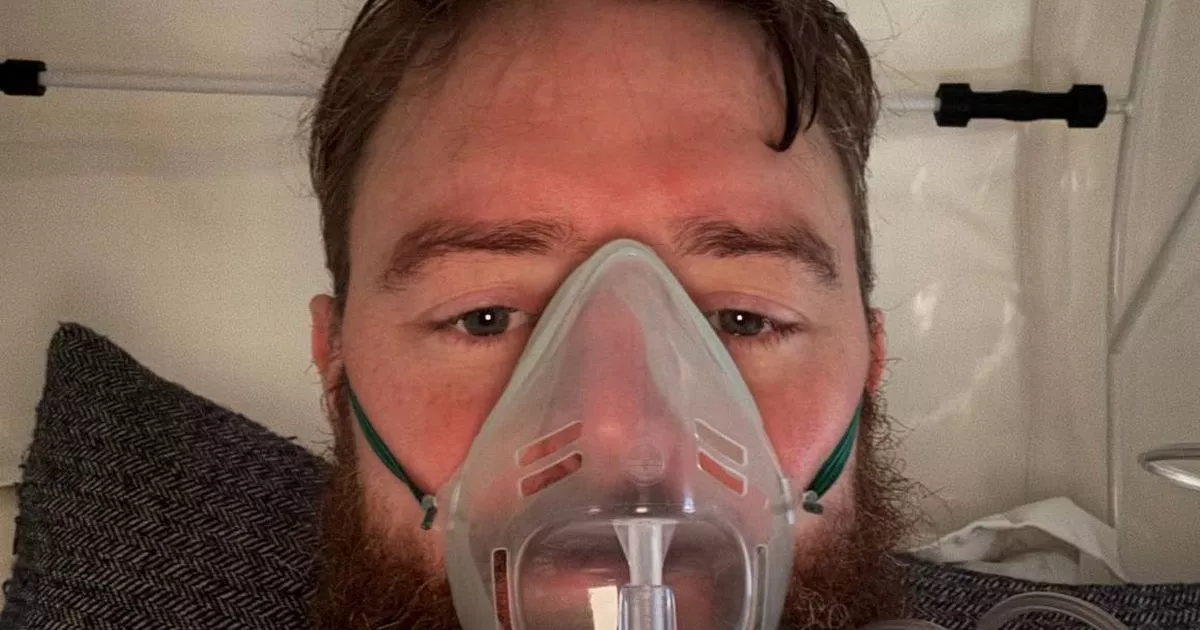Dale Atkinson, 36, was diagnosed with stage four oesophageal cancer in October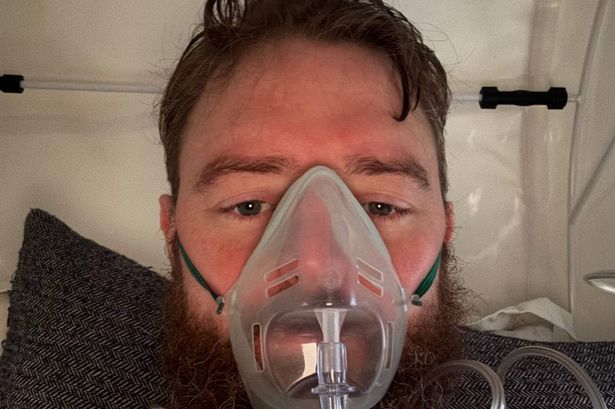 Dale initially suffered with heartburn and acid reflux(Image: PA Real Life)
Dale initially suffered with heartburn and acid reflux(Image: PA Real Life)
A dad-of-two, diagnosed with “incurable” cancer, said he could soon have “no evidence” of the disease, less than a year after his diagnosis, thanks to a combination of non-traditional treatments. Dale Atkinson, 36, had been suffering from heartburn and acid reflux for several years, which eventually led to difficulty swallowing solid foods.
After undergoing further tests, Dale, who used to run his own consulting business but has since stepped back due to his health, was diagnosed with stage four oesophageal cancer in October 2024. A nearly 10-centimetre “inoperable” tumour was discovered, and he was told the disease had spread to other parts of his body.
Given a prognosis of just 11-and-a-half months, Dale, who lives in Reading, Berkshire, with his long-term partner, Ana, and their two sons, Axel, three, and Cole, 18 months, was determined to improve his chances of survival. He began researching non-traditional, “science-backed” treatments to make his body “more susceptible and receptive” to the chemotherapy and immunotherapy he received via the NHS.
While not claiming to have found a cure, Dale estimates he has spent more than £100,000 on private treatments not covered by the NHS, including oxygen therapy, off-label drugs and genetic sequencing. In July, less than a year after his diagnosis, Dale said he was informed his tumour has “completely vanished” and a scan will soon determine if he has “no evidence of disease”.
Dale is urging the UK Government to allocate a budget, helping NHS patients access alternative treatments, to ensure cancer healthcare is dependent on “based on need, not wealth”.
“I’m now looking at being no evidence of disease within the next couple of months – before this, as far as the NHS was concerned, I was absolutely incurable,” Dale told PA Real Life. “I would be in a hospice by now, staring at my own death.
“It’s not a cure, I’m not naive, but to go from incurable to potentially NED (no evidence of disease) in under a year, that’s not luck, that’s strategy.”
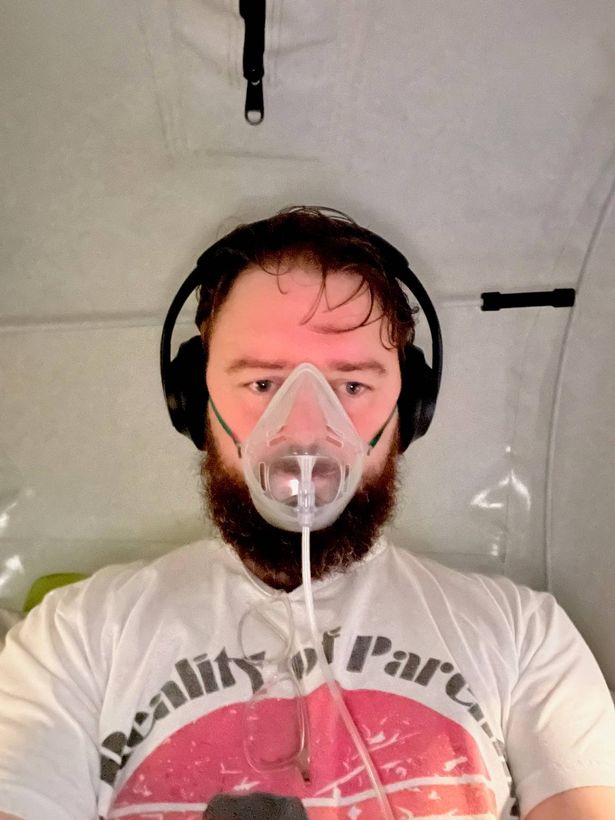 Dale said his cancer was ‘incurable’(Image: PA Real Life)
Dale said his cancer was ‘incurable’(Image: PA Real Life)
The NHS describes complementary and alternative medicine as treatments outside mainstream healthcare, advising those interested to consult their GP first. Certain therapies lack validation from independent scientists, others show efficacy for limited conditions.
Struggling with persistent heartburn and acid reflux for years, Dale first sought help from his GP in 2018. “Ana and I had a sociable, alcohol-based lifestyle – we didn’t think it was that uncommon that I had consistent heartburn,” he remarked.
As time went on, Dale’s symptoms progressively worsened, leading to him waking up at night “choking on (his) own stomach acid”. Despite undergoing blood and stool exams, his test results returned clear.
After relocating to Reading from London in 2022, Dale sought help from a new GP due to difficulties swallowing food. “Larger bits of food would get stuck and I’d need a lot of water to try and force it down,” he explained.
Dale’s GP arranged for him to have an endoscopy, where a camera was inserted down his throat. However, he said the doctors had trouble positioning it correctly.
“The whole room went a bit quiet, they had found a tumour which was noticeable on the screen,” he remembered.
On October 15, 2024, Dale was diagnosed with stage four metastatic oesophageal adenocarcinoma when an “inoperable” tumour measuring about 10cm was discovered near the junction between his stomach and oesophagus. He was later informed that his cancer was “particularly aggressive” and it had spread to his pancreas, aorta and lymph nodes.
Dale was told he had just 11-and-a-half months to live and his treatment plan on the NHS would be palliative care, aiming to improve his prognosis where possible. “It was an initial period of shock and disbelief, and being scared,” he admitted.
He added: “For me though, the NHS is not at fault in any way, shape or form – things like this happen unfortunately.”
Determined to defy his prognosis, Dale embarked on a journey of research into various treatment options. He met with integrative oncologists and stage four cancer survivors across the country.
With their guidance, he devised a plan to “combine NHS treatment with additional science-based therapies”, referred to as “complementary care”. The goal was to enhance the effectiveness of the chemotherapy and immunotherapy he began receiving through the NHS in late 2024.
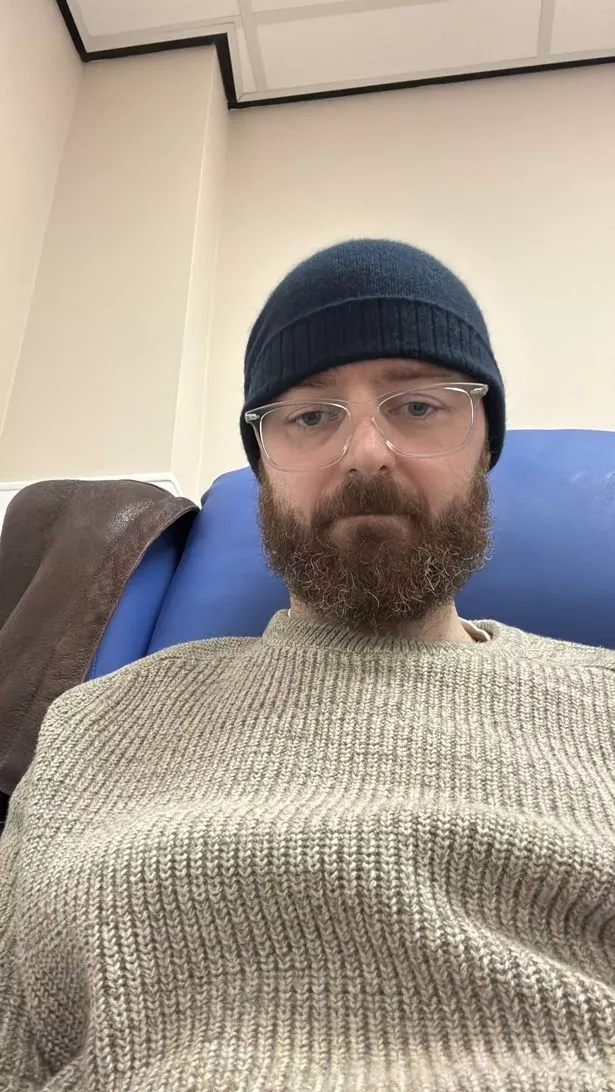 Dale used nontraditional therapies alongside mainstream treatment(Image: PA Real Life)
Dale used nontraditional therapies alongside mainstream treatment(Image: PA Real Life)
Dale paid out-of-pocket for off-label medications and customised supplementation, as well as hyperbaric oxygen therapy, which involves inhaling pure oxygen in a pressurised room. He also tried mistletoe therapy, which he said boosts immunity and minimises treatment side-effects.
He also discovered “next-generation genetic sequencing”, where biopsies are taken from his tumour to compile a list of treatments that would more effectively target his cancer.
At the height of his treatment, Dale revealed he was taking “over 100 tablets” daily, adding: “It sounds extreme, but each one had a reason and we adapted the plan every month based on my test results.”
In total, Dale estimates he spent more than £100,000 to access private treatments, acknowledging some paths were “dead ends”. “I’ve thrown a lot at this to get me to where I am now, but that shouldn’t be the case,” he said.
“In other countries, like Germany and Switzerland, some of the treatments I have used are completely standard, while here they are viewed as alternative.”
On July 3, Dale had cause for celebration as he received uplifting news from his oncologist regarding his fight with cancer. “My near-10 centimetre tumour has completely vanished, my metastases are gone and they are putting me forward for a PET scan to see whether I have no evidence of disease,” he said.
He emphasised the personal significance of his health battle: “For me, it’s more about my kids and my partner – for Ana to have me here and for my children to have a dad.”
Determined to help others access non-traditional treatments through the NHS, Dale is advocating for the creation of a “personal integrative care budget”. This would be a specialised fund that provides patients with the option of trying “evidence-based complementary therapies”.
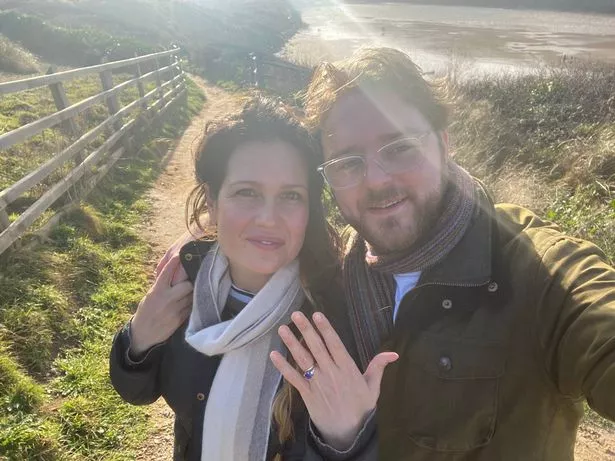 Dale said he recently received ‘very good news’ from his oncologist(Image: PA Real Life)
Dale said he recently received ‘very good news’ from his oncologist(Image: PA Real Life)
Dale clarified his goals while acknowledging the ongoing risks: “I’m not claiming to have found a cure and I know recurrence is a risk for me, but the whole aim behind this is about trying to make some of these science-backed therapies accessible for people who don’t have the means. Cancer care should be based on need, not wealth.”
A spokesperson for the Department of Health and Social Care said: “The NHS follows advice from the independent National Institute for Health and Care Excellence (Nice) on which treatments to fund for diseases such as cancer, based on the latest scientific evidence.
“Our 10-Year Health Plan will transform cancer care across the NHS, making it easier for patients to access screening, diagnostic and treatment nearer to where they live, backed by the latest technology, to drive up this country’s cancer survival rates.”
For more information, see Dale’s petition.
